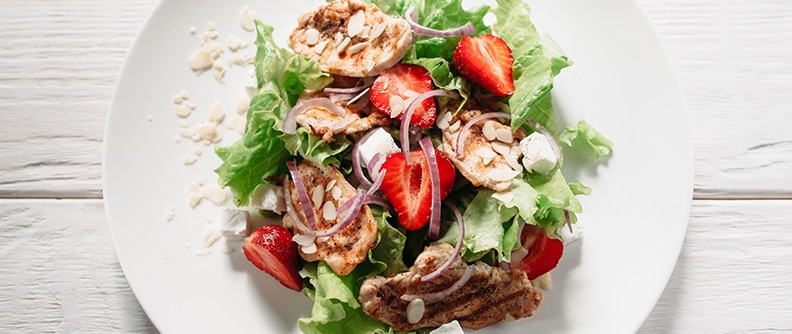Meal planning is one of the most important things you can do to keep your blood sugar in a safe range. Paying attention to what you're eating, how much, and when might seem like a huge challenge at first, but these tips can help make it easier.
Quality: What can I eat?
Having diabetes doesn't mean you can't eat food you enjoy. You can keep eating the foods you like. Just make sure to include lots of healthy, nutritious choices.
Healthy, nutritious choices include whole grains, legumes (dried beans, peas, and lentils), fruits, vegetables, non-fat or low-fat dairy, and lean meats, such as fish and poultry. These foods are high in vitamins, minerals, fiber, and lean protein, and low in saturated fat, cholesterol, and refined sugar.
Healthier food choices aren't only good for people with diabetes. They're good for everyone. People who eat a variety of these foods every day have a well-balanced diet and get the nutrients their bodies need.
Quantity: What’s the right amount of food for me?
Learning about serving sizes is key to meal planning. Food labels on packaged foods and many recipes tell you what a serving size is. These labels tell you how many calories, carbohydrates, protein, and fat are in each serving.
You'll need to know serving sizes to help you choose foods that keep your blood sugar from going too high after you eat. If you take fast-acting insulin to control your blood sugar, knowing the serving size will tell you how much insulin you need to take before you eat.
Eating carbohydrates affects your blood sugar more than other foods. The more you eat, the faster and higher your blood sugar will rise. Eating fat and protein can affect how quickly your body turns carbohydrates into sugar. When you know the amount of carbohydrate, protein, and fat you're eating at a meal, you can learn to choose foods that help to keep your blood sugar levels even.
The total amount of calories you eat every day is also important. Eating the right number of calories will keep you at a healthy weight or help you lose weight if you need to.
Work with your health care team to figure out how many calories you should have. The number will depend on your age, height, activity level, health goals, and current weight.
If your blood sugar levels are in a safe range, you can use the following tips to help you lose or gain weight:
- If you eat fewer calories than you need, you'll lose weight.
- If you eat more calories than you need, you'll gain weight.
- If your weight is staying the same, your body is using up about the same number of calories as you eat.
- To gain 1 pound, you need to eat 3,500 more calories than your body needs for one week.
- To lose 1 pound, you need to cut 3,500 calories from your diet for one week or 500 calories a day every day for one week.
- If you are trying to lose weight, consider decreasing the number of servings of high-calorie or high- carbohydrate foods you eat per day.
- Another simple change that helps with weight loss is to decrease the portion sizes of your foods.
Timing: When can I eat?
When you eat is as important as how much you eat. When you have diabetes, your body isn't able to adjust the amount of insulin that goes into your bloodstream in response to what you eat. Eating the same amount of carbohydrate at the same time every day can help you keep your blood sugar levels in a safe range. This doesn’t mean you need to eat the same thing every day. But eating the same number of servings at the same time each day can help keep your blood sugar levels consistent and in a safe range.
Most diabetes medicine helps your body use up sugar. Every time you take diabetes pills or insulin, you need to make sure you time the amount of carbohydrates you eat. If you don't eat enough carbohydrates at the right time, diabetes medicine can cause your blood sugar to drop.
f you eat too much carbohydrate at the wrong time, you might not have enough diabetes medicine in your body to keep your blood sugar level close to normal in target range. In that case, your blood sugar will get too high.
Your doctor can tell you how to match the medicine you take to the amount of carbohydrates you eat.
Helpful tip
Many people find that eating smaller amounts of food four to six times a day, instead of eating two or three big meals, meets their energy needs and keeps them from getting too hungry. It also helps keep blood sugar from going too high after a big meal.
Here are some reasons eating small amounts throughout the day might make you feel better:
- Your body will have a constant source of energy.
- You're less likely to get so hungry that you overeat when you finally have a meal.
- You might be able to control your weight better because you're not tempted to overeat.
- It can help you keep your blood sugar in a normal range.
If you take mealtime insulin, be sure to discuss this approach with your healthcare team prior to changing your eating habits.
Once you learn the basics about serving sizes and food groups, you'll be able to develop new eating habits that fit into your lifestyle and help you manage your diabetes.
